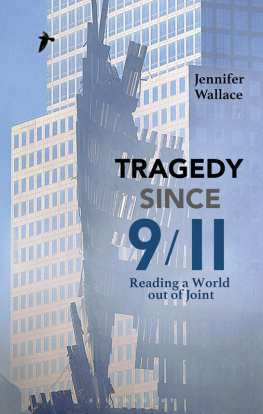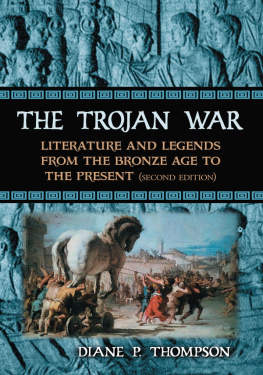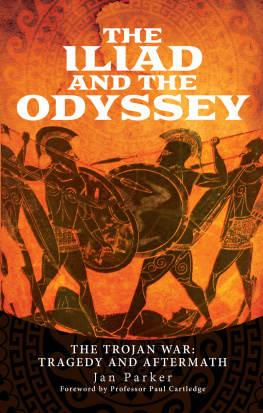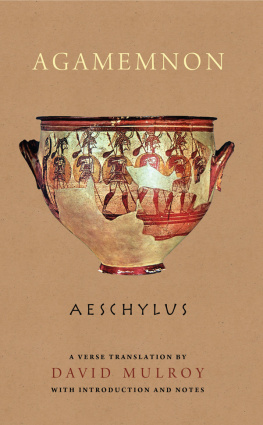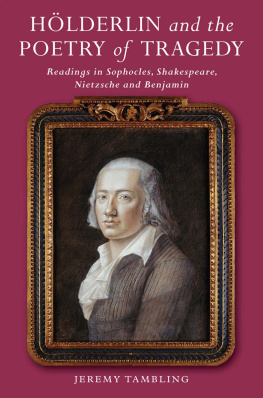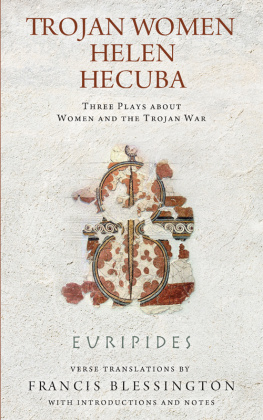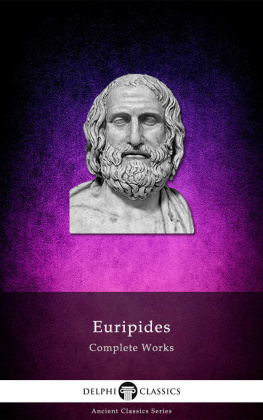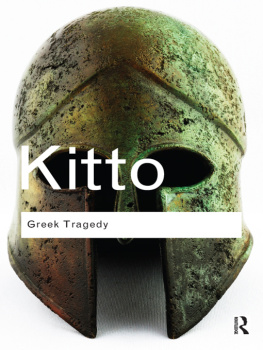Tragedy
Since 9/11
RELATED TITLES
A Cultural History of Tragedy: Volumes 16
Edited by Rebecca Bushnell
978-1-4742-8814-9
Contemporary Adaptations of Greek Tragedy: Auteurship and Directorial Visions
Edited by George Rodosthenous
978-1-4725-9152-4
English Renaissance Tragedy: Ideas of Freedom
Edited by Peter Holbrook
978-1-4725-7280-6
Reader in Tragedy: An Anthology of Classical Criticism to Contemporary Theory
Edited by Marcus Nevitt and Tanya Pollard
978-1-4742-7042-7
Visions of Tragedy in Modern American Drama
Edited by David Palmer
978-1-4742-7693-1
Tragedy
Since 9/11
Reading a World Out
of Joint
Jennifer Wallace

The arc of the moral universe is long but it bends towards justice.
MARTIN LUTHER KING, JR.
The time is out of joint. O cursd spite
That ever I was born to set it right!
HAMLET
To Robert, for all those why?s
Back cover. A hooded Iraqi prisoner of war comforts his four-year-old son at a US-run centre for POWs near An Najaf, Iraq. 31 March 2003. Jean-Marc Bouju/AP
Probably every age has its fair share of tragic events. After all, as the great critic Raymond Williams once said, we come to tragedy by many roads but the ultimate destination of all our journeys is death. Each individual has to cope with living (and sometimes partly living), loving and losing, suffering and surviving, hoping and declining. Such are the ordinary vicissitudes of life when some fortunes rise and some slip a little downwards, and sorrow, daily injustice and infidelity are unremarkable.
However, it seems as if this age, the first two decades of the twenty-first century, is especially an age of tragedy. We have witnessed a growing fundamentalism and the clash of cultures in which the polarization between friends and enemies is starker than ever. We have felt optimism as revolutions have swept through the Middle East, apparently liberating a people based on their own aspirations and efforts, only to see those new regimes fall into chaos, old systems re-imposed and all principles of political belief interrogated and set at naught. Wars have been waged on a questionable mandate, hundreds of thousands of lives have been lost and billions of dollars spent, and the situation now seems more violent and disordered than before the wars. Perhaps no other age has had such an acute sense of futility and powerlessness. We watch an economic world of growing inequality between rich and poor, in which international corporations seem to be above the law and beyond democratic accountability and the individual questions his relationship with the collective and with the state. We live lives of credit and debt, where the bonds of trust and reciprocation have been turned into servitude and slavish dependency. Meanwhile, the coral reefs die and animal species become extinct at an exponential rate as the planet warms and the scientists warn us in vain about a dire future for the world. Instead of heeding their warning, with hubris we take advantage of the melting Arctic to drill for more of the oil that caused the warming and the melting in the first place. Then when the global south seeks refuge from the droughts and famine produced by our warming planet, as well as from the wars and violence caused by our interventions in their states, we put up fences to keep them out. So the victims of our arrogant complacency die in their thousands at our borders, drowning at our coastlines and rivers, crushed beneath the wheels of First World prosperity.
Such is the modern world of which I speak in this book on tragedy. It is strikingly the case that tragedies on the stage flourish in periods of great transition. Greek tragedy arose when a religious, mythical sensibility gave way to a secular, logical and democratic outlook and the clash of values led to uncertainty and conflict. Shakespeare was writing during the Reformation when beliefs in purgatory, confession and the miracle of the Eucharist were overturned and kingship lost its divine right. We are undoubtedly experiencing a similar period of cultural transition now. So, is there a similar flourishing of tragic expression? Writers, artists and film-makers certainly respond to our turmoil and confusion and try to make sense of it all in their work, and I consider a number of these plays, novels, movies and art pieces in this book alongside my primary focus upon tragic events. What are the new forms of tragedy that are being produced to respond to the specific novel characteristics of our contemporary world? Writers and theatre directors are also returning to the old classic tragedies, performing them anew as they seem to speak urgently to the questions that arise now. This has been a golden age for the innovative re-performance of Greek and Shakespearean tragedy and other works in the canonical tragic tradition: Marlowe and Webster, Buchner, Ibsen, Brecht, Miller, Beckett.
The defining moment of the last twenty years was 9/11, when two planes flew into the World Trade Center and everything seemed to change. On a literal level, the event ushered in heightened security at home and two wars abroad: the immediate revenge bombardment of Afghanistan for a missing target, since Osama bin Laden had already fled, and then the subsequent campaign in Iraq whose connection with al-Qaeda and 9/11 was non-existent but frequently erroneously repeated. President George W. Bush announced his global War on Terror, telling the world that you are either with us or against us, while Tony Blair also saw the attack on September 11 as a turning point in world affairs. His speech just a month later, at the British Labour Party conference, declared his ambition to re-order the world:
So I believe this is a fight for freedom. And I want to make it a fight for justice too . The starving, the wretched, the dispossessed, the ignorant, those living in want and squalor from the deserts of North Africa to the slums of Gaza, to the mountain ranges of Afghanistan: They too are our cause. This is a moment to seize. The Kaleidoscope has been shaken. The pieces are in flux. Soon they will settle again. Before they do, let us re-order this world around us.
This speech presaged the British close alliance with America and the commitment to the War on Terror. The significance of Blairs idealistic or arrogant vision (depending on your perspective) was not lost on commentators. Here was an attempt to impose one moral code upon the rest of the world, the ambition of which was like the hubris of the ancient tragic hero, rivaling the gods in its aspiration, going beyond the boundary of acceptable, mortal limitations. Hubris, of course, always deserved to be punished by the gods. Nothing in excess was, by contrast, the wise advice carved in stone at Delphi.
The shaking of the kaleidoscope meant that New Yorkers, Americans, the Western world, felt immediately more vulnerable. There was a sense the metaphorical boundary separating them from the struggles of the rest of the world had been ruptured. Now they were opened up, dependent, precarious. And so, after the initial shock and disorientation of the event, there was a possibility, according to some commentators, that we could be entering a new age of sympathy and tolerance. 9/11 could have resulted in the good work of compassion, as the philosopher Martha Nussbaum has argued, when Americans made real to themselves the sufferings of so many people whom they never would have otherwise have thought about. We could, she said, imagine community differently.
Yet alongside the newly awakened compassion, 9/11 also ushered in an era of fear and intolerance, when the boundaries between us and them, friends and enemies, were delineated more sharply. According to Slovenian cult philosopher Slavoj iek, the event was not actually a surprise or shock, as the common consensus would have it, but was in fact presaged by decades of paranoid fantasies of catastrophe and threat, and appropriated to justify and confirm long-established ideological responses, like increased bombing abroad and heightened security measures at home. In other words, Americans had been imagining themselves under attack for years, in numerous Hollywood movies and popular fiction, and this fear justified their violent response, increased military spending and heightened domestic surveillance. 9/11 was, for iek, a throwback to an old mythology: domestic bravery and external threat. Certainly, rather than Butlers ethics of common human vulnerability, the discourse of the War on Terror reached for much older ideological terms: hero, sacrifice, crusade, good and evil. September 11 is the paradigmatic tragedy of the twenty-first century, and so I cannot avoid returning to it again and again, like some unresolved trauma, throughout this book. It can be considered a tragedy on many different levels, from the simple statistics of the loss of life and the subsequent far greater loss of lives in its name, to the traditional tragic emotions pity and fear which it provoked, to the potential forms of tragic recognition to which it could have led (the possibilities of compassion and shared precariousness) to the hardening of ideological positions and growing violence and division for which it was taken as justification.
Next page
